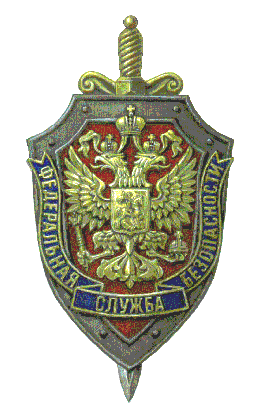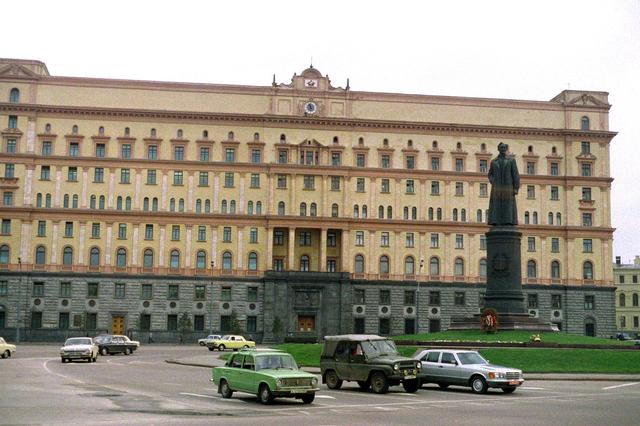Re: The Rise of the Russian Empire: Russo-Armenian Relations

About 500 domestic and foreign arms manufacturers will participate in an international arms exhibition to be held in the Urals Region next month, a local government official said on Wednesday. Russian Expo Arms 2008 on July 9-12 is the sixth biannual arms exhibition held in the town of Nizhny Tagil, considered the home of Russia's weapons industry, and is organized by the Federal Agency for Industry and the government of the Sverdlovsk Region. "Delegations from 47 countries, including Austria, Canada, France, Ghana and Ukraine, will participate in the exhibition at the former Soviet target range Staratel as guests and potential buyers," said Viktor Koksharov, the head of the Sverdlovsk Region government. He said 170 defense industry enterprises in the Urals are responsible for the manufacture of 70% of Russia's conventional weaponry. Rosoboronexport, Russia's state arms exporter, said the exhibition would focus on the development of light armored vehicles, artillery and multi launch rocket systems (MLRS). "Among those are the Msta-S self-propelled howitzer and a unique tank support combat vehicle [Russian acronym BMPT]," said Igor Sevastyanov, Rosoboronexport's deputy general director. The BMPT, dubbed the Terminator, is built on the basis of the most mass-produced T-72 battle tank. The new combat vehicle features enhanced armor protection and is equipped with powerful armament capable of destroying anti-tank capable ground and air targets and infantry, while operating in a common battle formation. Its main armament consists of two 30-mm 2A42 automatic cannons, a coaxially-mounted 7.62-mm PKTM machine gun with an electromechanical drive, and four launchers with laser-guided Attack-T anti-tank missiles. Russia has almost doubled annual arms exports since 2000 to almost $5 billion last year, becoming the world's second-largest exporter of conventional arms after the United States. Rosoboronexport earlier said that the country could export weaponry worth about $7.5 billion in 2008. Russia exports weapons to about 80 countries. Among the key buyers of its weaponry are China, India, Algeria, Venezuela, Iran, Malaysia and Serbia.
Source: http://en.rian.ru/russia/20080625/112105566.html

Turkmenistan has signed a $70 million contract with Russia to buy six Smerch multi launch rocket systems (MLRS), a Russian business daily said on Tuesday. Kommersant said that under the contract, the first major military-technical deal with Ashgabat in the past decade, the Smerch manufacturer, OAO Motovilikhinskiye Zavody, will deliver the first two systems before the end of this year and the other four next year. The manufacturer said it would also complete deliveries of Smerch systems to India in July under a $300 million contract. The plant previously supplied 30 Smerch systems to India, worth an estimated $450 million. The 300mm Smerch rocket has an effective range of 70-90km. One rocket cluster contains 72 submunitions, each weighing 2 kg. Its impact angle is strictly vertical: 90 degrees. A cone of such "meteorites" easily pierces the turrets and top shielding of armored personnel carriers, infantry fighting vehicles, self-propelled gun mounts, and even tank transmission compartments where the armor is not thick.
Source: http://en.rian.ru/russia/20080624/111892212.html

The Strategic Missile Forces will speed up the commissioning of Topol-M missiles and have 11 missile complexes at the ready by the end of the year. Two of them will be stationary, and the remaining missiles will be mobile, according to ARM-TASS, which cited chief of the missile forces Gen. Col. Nikolay Solovtsov. The stationary launch facilities will be located at the 60th Missile Division in Tatishchevo, Saratov Region. They will bring the total of stationary launch facilities to 50. Topol-M complexes are equipped with improved RS-2PM2 intercontinental ballistic missiles with split warheads that make them practically impossible to intercept. They have a range of 10,000 km. The mobile Topol-M launch facilities will be based on MZKT-79221 tractors equipped with 800-hp. diesel engines with a maximum speed of 45 km/h. and maximum travelling distance of 500 km.
Source: http://www.kommersant.com/p-12729/weapons_arsenal/
Russian Expo Arms 2008 to showcase 500 companies

About 500 domestic and foreign arms manufacturers will participate in an international arms exhibition to be held in the Urals Region next month, a local government official said on Wednesday. Russian Expo Arms 2008 on July 9-12 is the sixth biannual arms exhibition held in the town of Nizhny Tagil, considered the home of Russia's weapons industry, and is organized by the Federal Agency for Industry and the government of the Sverdlovsk Region. "Delegations from 47 countries, including Austria, Canada, France, Ghana and Ukraine, will participate in the exhibition at the former Soviet target range Staratel as guests and potential buyers," said Viktor Koksharov, the head of the Sverdlovsk Region government. He said 170 defense industry enterprises in the Urals are responsible for the manufacture of 70% of Russia's conventional weaponry. Rosoboronexport, Russia's state arms exporter, said the exhibition would focus on the development of light armored vehicles, artillery and multi launch rocket systems (MLRS). "Among those are the Msta-S self-propelled howitzer and a unique tank support combat vehicle [Russian acronym BMPT]," said Igor Sevastyanov, Rosoboronexport's deputy general director. The BMPT, dubbed the Terminator, is built on the basis of the most mass-produced T-72 battle tank. The new combat vehicle features enhanced armor protection and is equipped with powerful armament capable of destroying anti-tank capable ground and air targets and infantry, while operating in a common battle formation. Its main armament consists of two 30-mm 2A42 automatic cannons, a coaxially-mounted 7.62-mm PKTM machine gun with an electromechanical drive, and four launchers with laser-guided Attack-T anti-tank missiles. Russia has almost doubled annual arms exports since 2000 to almost $5 billion last year, becoming the world's second-largest exporter of conventional arms after the United States. Rosoboronexport earlier said that the country could export weaponry worth about $7.5 billion in 2008. Russia exports weapons to about 80 countries. Among the key buyers of its weaponry are China, India, Algeria, Venezuela, Iran, Malaysia and Serbia.
Source: http://en.rian.ru/russia/20080625/112105566.html
Russia to sell six multi launch rocket systems to Turkmenistan

Turkmenistan has signed a $70 million contract with Russia to buy six Smerch multi launch rocket systems (MLRS), a Russian business daily said on Tuesday. Kommersant said that under the contract, the first major military-technical deal with Ashgabat in the past decade, the Smerch manufacturer, OAO Motovilikhinskiye Zavody, will deliver the first two systems before the end of this year and the other four next year. The manufacturer said it would also complete deliveries of Smerch systems to India in July under a $300 million contract. The plant previously supplied 30 Smerch systems to India, worth an estimated $450 million. The 300mm Smerch rocket has an effective range of 70-90km. One rocket cluster contains 72 submunitions, each weighing 2 kg. Its impact angle is strictly vertical: 90 degrees. A cone of such "meteorites" easily pierces the turrets and top shielding of armored personnel carriers, infantry fighting vehicles, self-propelled gun mounts, and even tank transmission compartments where the armor is not thick.
Source: http://en.rian.ru/russia/20080624/111892212.html
11 New Topol Missiles to Enter Service

The Strategic Missile Forces will speed up the commissioning of Topol-M missiles and have 11 missile complexes at the ready by the end of the year. Two of them will be stationary, and the remaining missiles will be mobile, according to ARM-TASS, which cited chief of the missile forces Gen. Col. Nikolay Solovtsov. The stationary launch facilities will be located at the 60th Missile Division in Tatishchevo, Saratov Region. They will bring the total of stationary launch facilities to 50. Topol-M complexes are equipped with improved RS-2PM2 intercontinental ballistic missiles with split warheads that make them practically impossible to intercept. They have a range of 10,000 km. The mobile Topol-M launch facilities will be based on MZKT-79221 tractors equipped with 800-hp. diesel engines with a maximum speed of 45 km/h. and maximum travelling distance of 500 km.
Source: http://www.kommersant.com/p-12729/weapons_arsenal/














Comment